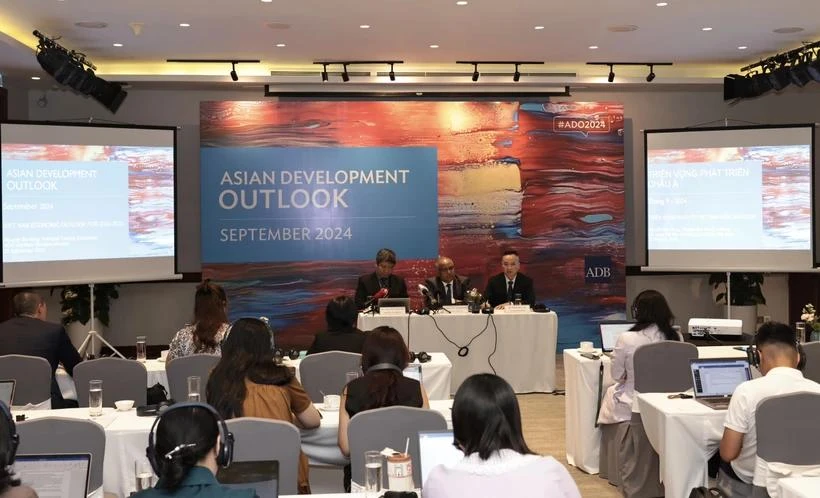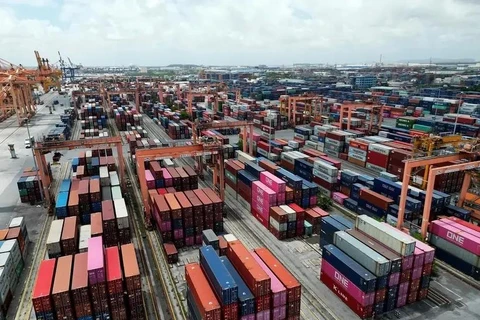
Hanoi (VNA) - The Asian Development Bank (ADB) projects a positive economic outlook for Vietnam, forecasting its Gross Domestic Product growth at 6.0% this year and 6.2% in the following year.
Vietnam’s economy showed robust recovery in the first half of 2024 and continues to maintain momentum despite global uncertainty, said ADB Country Director for Vietnam Shantanu Chakraborty at the launch of the Asian Development Outlook (ADO) September.
He attributed the steady recovery to improving industrial production and a strong rebound in trade.
The industrial sector continues to be a primary driver of growth, with external demand for major electronics fueling production, according to Principal Country Economist, ADB Vietnam Nguyen Ba Hung.
Vietnam’s recovery has also been supported by a rebound in the services sector and stable agricultural output. However, domestic demand remains sluggish and global economic prospects add uncertainty.
He said trade recovery and positive foreign direct investment (FDI) should be key growth drivers. Exports and imports in the first eight months of 2024 showed strong rebounds of 15.8 and 17.7%, respectively, from the low 8-month base in 2023.

The uncertainty of the continued restructuring of global and regional supply chains hampers trade prospects. Imports and exports will likely grow by over 10% this year and slightly higher next year, with the gradual revival of external demand.
The bank also predicted Vietnam’s inflation rate at 4% over the two years. Geopolitical tensions, including conflicts in the Middle East and that between Russia and Ukraine could push up oil prices with knock-on effects on inflation.
It also highlighted several risks which could slow down Vietnam’s economic growth, including weakening demand in major economies, increasing protectionism, and instabilities related to the US presidential election in November that may lead to trade fragmentation, adversely affecting exports, manufacturing activity, and employment.
According to Hung, it is important to maintain growth momentum in 2024 and the following year, ensuring macroeconomic stability with a more balanced combination of monetary and fiscal policies, along with comprehensive state management reforms. Weaker-than-expected external demand requires continued policy measures to promote business activities aimed at stimulating domestic demand, he noted.

The State Bank of Vietnam continued to pursue a flexible monetary policy to facilitate low-cost financing to support growth. It has extended the application period for regulations on restructuring debt repayment terms and maintaining the same debt group for customers facing difficulties until December 31, 2024.
Chakraborty said that the consequences of Typhoon Yagi were quite large but the impact on the economy was limited. He recommended that the Government should accelerate the disbursement of public investment capital and support policies to boost the economy of localities affected by storms and floods.
The ADB expert suggested that the country’s monetary policy should continue to aim for both price stability and growth, despite limited policy space. However, the heightened risk of nonperforming loans due to continued regulatory relaxation on loan extensions limits the potential for further monetary easing. Any additional loosening of monetary policy should be closely coordinated with an expansionary fiscal policy, along with accelerating institutional reforms to support the economy, he said./.






















